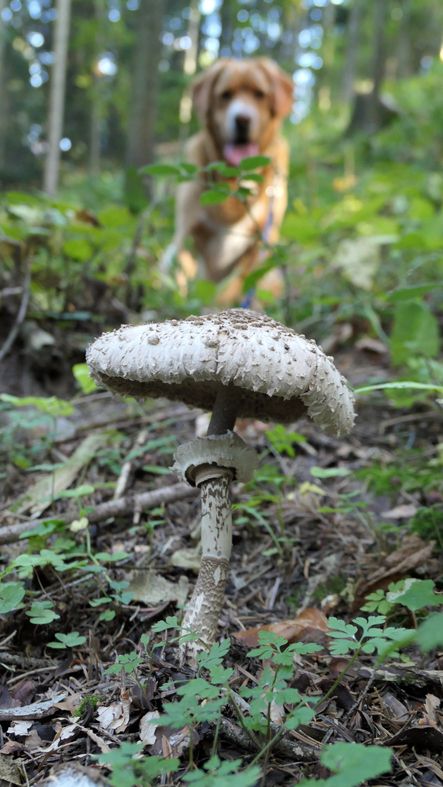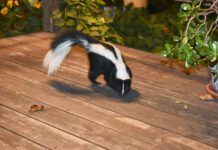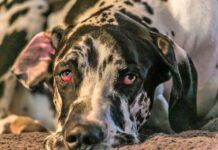
So your dog ate a mushroom in the grass before you could stop them. What now? Thousands of mushrooms grow in the United States, and only a few are toxic to dogs – but those that are can be fatal. Here’s what to do if your dog eats a wild mushroom.
Can you identify the mushroom?
Most wild mushrooms are harmless to dogs, and if your dog swallows a “safe” one, he should be fine. But if your neighborhood hosts toxic mushrooms, protect your dog – especially your curious, omnivorous puppy – from the dangers of unsupervised exploration.
Not sure if the mushrooms in your backyard are “safe”? There are numerous apps available to help you; just search for “mushroom identification” in your app store so you can identify the wild mushrooms in your area.
The most important factors in treating your dog will be:
- What is the mushroom species your dog ate?
- How much did your dog consume, and when?
Experts recommend treating your dog’s consumption of any wild mushroom as a medical emergency unless you can positively identify it as harmless. Otherwise, call your vet or a 24/7 poison control center immediately.
- ASPCA Poison Control Center, (888) 426-4435, $65 consultation fee (this is discounted if you have ASPCA pet health insurance).
- Pet Poison Help Line, (855) 764-7661, $85 consultation fee.
What are the symptoms of mushroom poisoning?
Poisonous mushrooms can be life-threatening even in small amounts because their toxins damage the kidneys, liver, and neurological systems, producing symptoms such as:
- Excessive drooling
- Vomiting
- Diarrhea
- Increased thirst, drinking, and urination
- Weakness or lethargy
- Trouble breathing
- Loss of coordination
- Seizures
- Loss of consciousness
How is mushroom poisoning treated?
Slowing the absorption of mushroom toxins is crucial, so if less than two hours have passed since your dog swallowed a mushroom, your veterinarian may induce vomiting or use activated charcoal to bind with and remove toxins from the stomach. Hospitalization, IV fluids, and other supportive care may help prevent the progression of symptoms.
Prevention is your best strategy
Check your back yard and areas where your dog enjoys walking or playing for wild mushrooms and remove any that you find. Keep dogs on leash where mushrooms grow and train your dog to drop items like sticks and mushrooms on cue.





